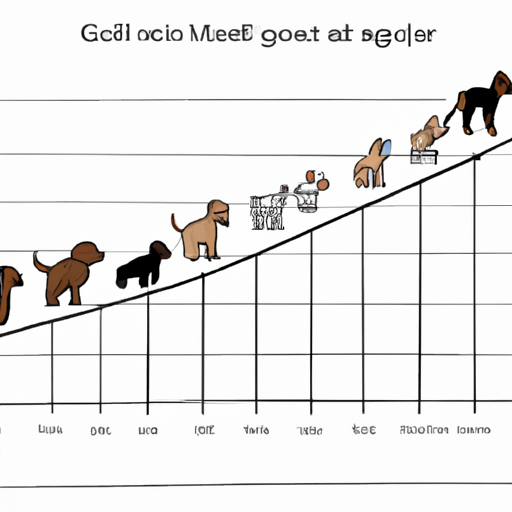Introduction
You. Yes, you, the caring and diligent pet owner, have probably asked yourself this question a thousand times: “When will my adorable pup stop growing?” It’s a common question, one that echoes in the minds and hearts of dog owners all over the world.
Understanding Your Dog’s Growth
Your dog’s growth is a magnificent journey, one that you, as a dedicated caregiver, have the privilege to witness. Different breeds grow at different rates, but they all pass through similar stages. The growth process can be divided roughly into three stages:
- Puppyhood: Usually lasts up until about 6-7 months of age.
- Adolescence: This stage can last from 6 months up to 2 years.
- Adulthood: Begins after the dog reaches its maximum height.
Factors That Influence Your Dog’s Growth
Knowing when your dog will stop growing isn’t as simple as circling a date on the calendar. Various factors come into play, which you, as a discerning pet owner, need to consider:
- Breed: Larger breeds take longer to reach their full size compared to smaller breeds.
- Nutrition: Proper nutrition plays a crucial role in your dog’s growth and development.
- Health: Underlying health issues can affect your dog’s growth rate.
Here’s a rough guide to when different breeds stop growing:
| Breed Type | Typical Age When Full Grown |
|---|---|
| Small Breeds | 6-8 months |
| Medium Breeds | 12-15 months |
| Large Breeds | 18-24 months |
| Giant Breeds | Up to 3 years |
How to Determine If Your Dog is Fully Grown
As a vigilant caregiver, you might be wondering how you can tell if your dog has stopped growing. Here are some signs:
- Your dog has reached its expected height and weight.
- Their paws don’t look too big for their body anymore.
- They’ve lost their puppy coat and have their adult coat.
Ensuring Healthy Growth for Your Dog
As a responsible and caring pet owner, ensuring your dog grows healthily is crucial. Here are some tips:
- Provide balanced nutrition: Make sure your dog’s diet includes all the necessary nutrients.
- Regular vet check-ups: Your vet can track your dog’s growth and alert you to any potential issues.
- Adequate exercise: Regular physical activity helps keep your dog fit and promotes healthy growth.
Frequently Asked Questions
Q: Can I speed up my dog’s growth?
A: No, you cannot and should not try to speed up your dog’s growth. This can lead to health issues.
Q: My dog is smaller than the average for its breed. Should I be worried?
A: Not necessarily. Like humans, dogs can vary in size. If you’re concerned, speak with your vet.
Q: When do dogs reach sexual maturity?
A: Most dogs reach sexual maturity between 6 months to a year of age.
We hope this guide has helped clarify the timeline of your dog’s growth. As a dedicated pet owner, your role in this journey is invaluable. So sit back, relax, and enjoy the ride. You’re doing a great job!



